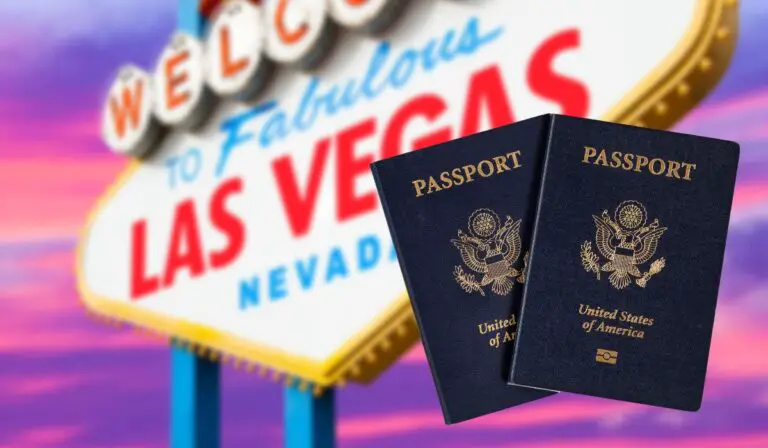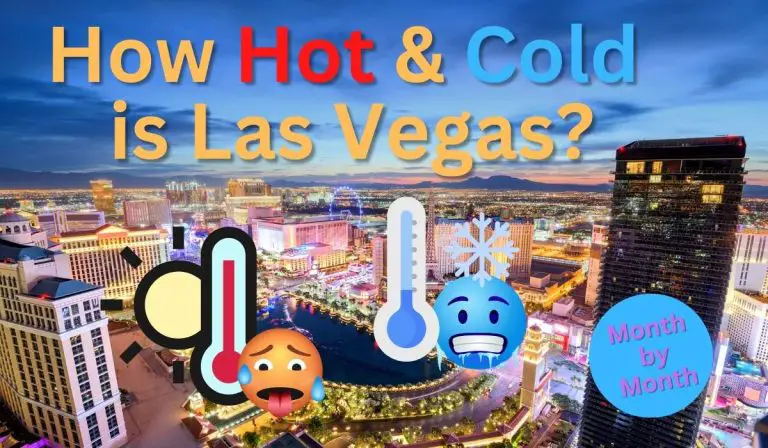Can You Go to Las Vegas with a Criminal Record: Just the Facts
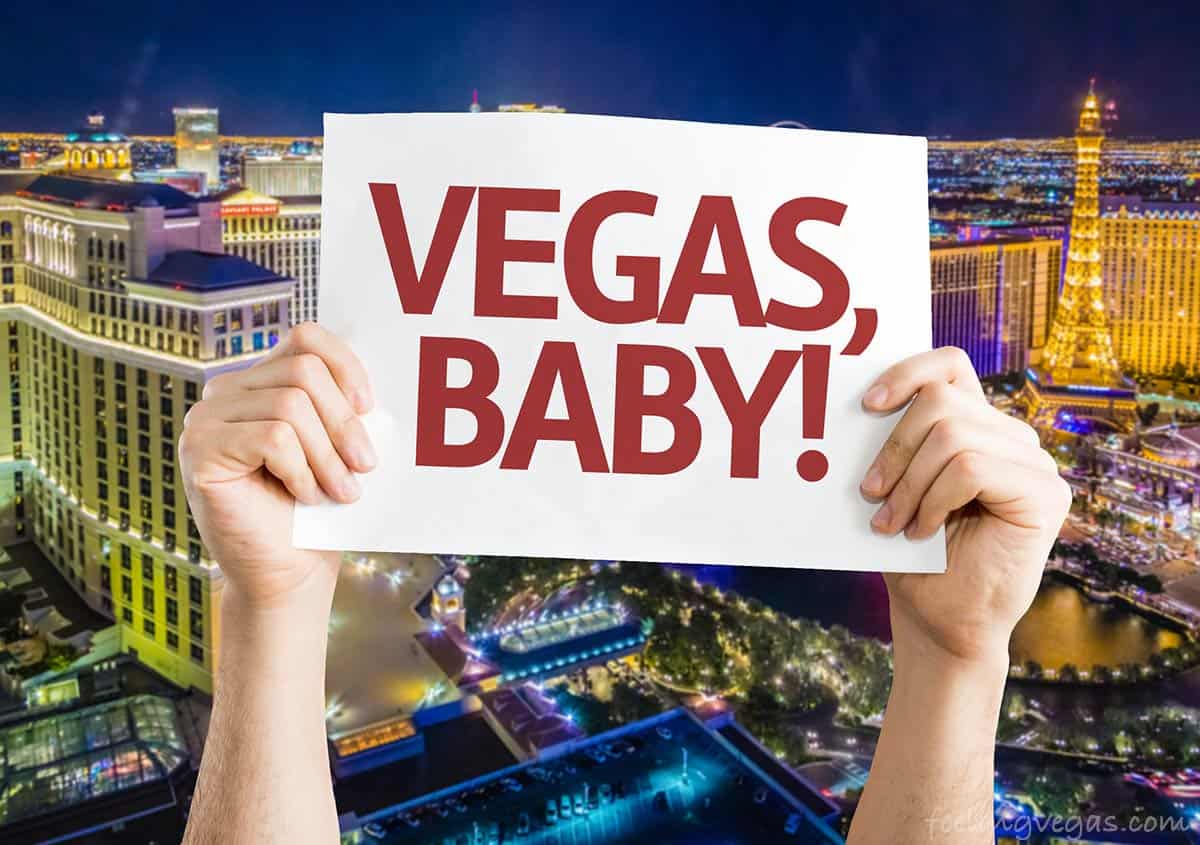
You’re going to Vegas, baby! Congrats, and I hope you’re getting ready to have some serious fun in Sin City. However, if you have a criminal record, there are some things you need to be aware of that may impair your entrance, delay the process, or even require a visa. No judgment here, as I believe we’re all humans that make mistakes, but you’ll want to educate yourself for the smoothest trip planning possible.
Before we go much further, we should first answer the question: Can you go to Las Vegas with a criminal record?
Yes, you can go to Las Vegas with a criminal record, but it will often require a visa if you are not a US citizen. If you are a US citizen with a criminal record, no visa will be required.
This guide will help you be more confident in the basics of how to travel to Las Vegas without any hangups. If you’re a Non-US citizen, it is absolutely not worth it to lie about your past mistakes. This could prevent you from ever being allowed in the US at all, so we will discuss the best course of action.
Can You Go to Las Vegas with a Criminal Record?
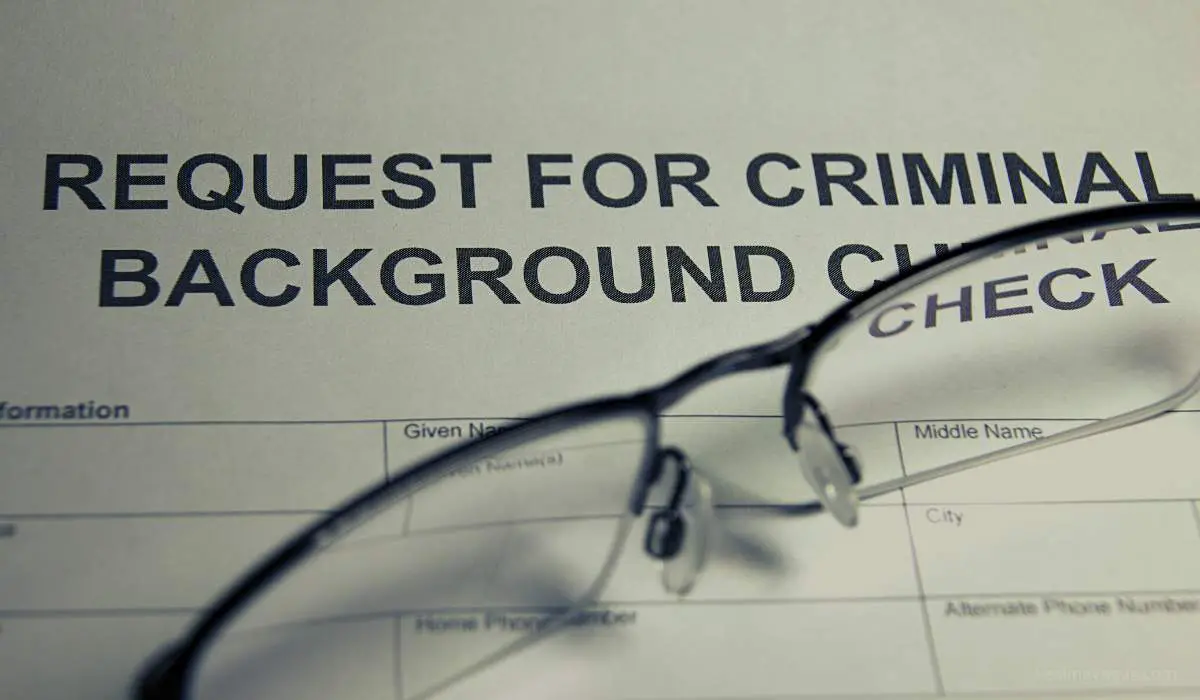
I want to start by explaining that if you are, in fact, a US citizen with a criminal record, you can still come to Las Vegas. It’s still within your country’s borders, so they cannot deny your entrance to a place within your citizenship. Therefore, this article will not pertain to US citizens.
In the case of Non-US Citizens, it will often depend on your crime, how long ago it occurred, and the luck of the draw with your customs agent.
One thing I want to stress the most is – do not lie or think you can sneak this past the authorities. If you do so and are caught, you will face what they describe as “permanent visa ineligibility based on misrepresentation.”
I’ve read countless forum discussions, and the things that are commonly brought up by users that you should not trust and statements which you should not believe are:
- If it happened a long time ago, you’re fine
- If it was a small crime, they won’t mind
- The US government doesn’t have access to my country’s databases
- I can lie about it, and no one will find out
These are all false, and you will probably not get away with it. Countries have access to each other’s records, so lying feels like the dumbest thing to do to me, thinking they just won’t communicate with one another. Part of the visa application process will include a fingerprint sample, which is then checked against thousands of law enforcement databases.
Feel free to give it a try. But don’t say I didn’t warn you when you’re banned from ever entering anywhere in the US ever again. They could place a 10-year exile on you or a permanent life-long status, so I truly do not believe it’s worth the risk.
Even if you did not receive a criminal conviction or are uncertain if your crime is bad enough to be included in this discussion, don’t risk leaving out important information that could have an effect on your eligibility for admission into the US for the long-term.
If you don’t have a criminal record, it’s fairly easy to travel to the US for under 90 days with a Visa Waiver Program (VWP). However, for those with a criminal record, a visa will be required.
The ESTA Waiver Form
The ESTA is a form to use if you’ve committed a crime that falls into the classification of a misdemeanor. Perhaps you’ve reached out to a lawyer and had your infraction expunged from your record. If this is the case, you may have the opportunity to pass into US territory with a simple ESTA Visa Waiver Form.
Do be sure that you’ve not been charged on the felony level, or else the waiver form will not be an option. If you risk it and are found out, you could risk being banned almost indefinitely as well as being sent home on your personal dime.
Some things which will make the ESTA the best option for you include:
- Traffic Violations
- Misdemeanors
- A Single DIC/DUI
- Small drug possession charges
- Minor offenses
The consulate cannot advise you on these, and you are personally responsible for being aware of your specific case. If you are unsure, I would encourage you to consult a lawyer. Many offer free consultations before signing you on as a client, so you can ask around and get some immigration advice free of charge.
The form will specifically ask you when applying through your government’s immigration page, “is the full extent of your history of legal violations limited solely to minor traffic offenses that did not result in your arrest and/or conviction?”
If your response is yes, then feel free to start on your ESTA form here.
If you cannot answer yes to that question, you will require a full-blown visa to enter the US (let alone Las Vegas!)
If ESTA Doesn’t Apply You’ll Need a Visa
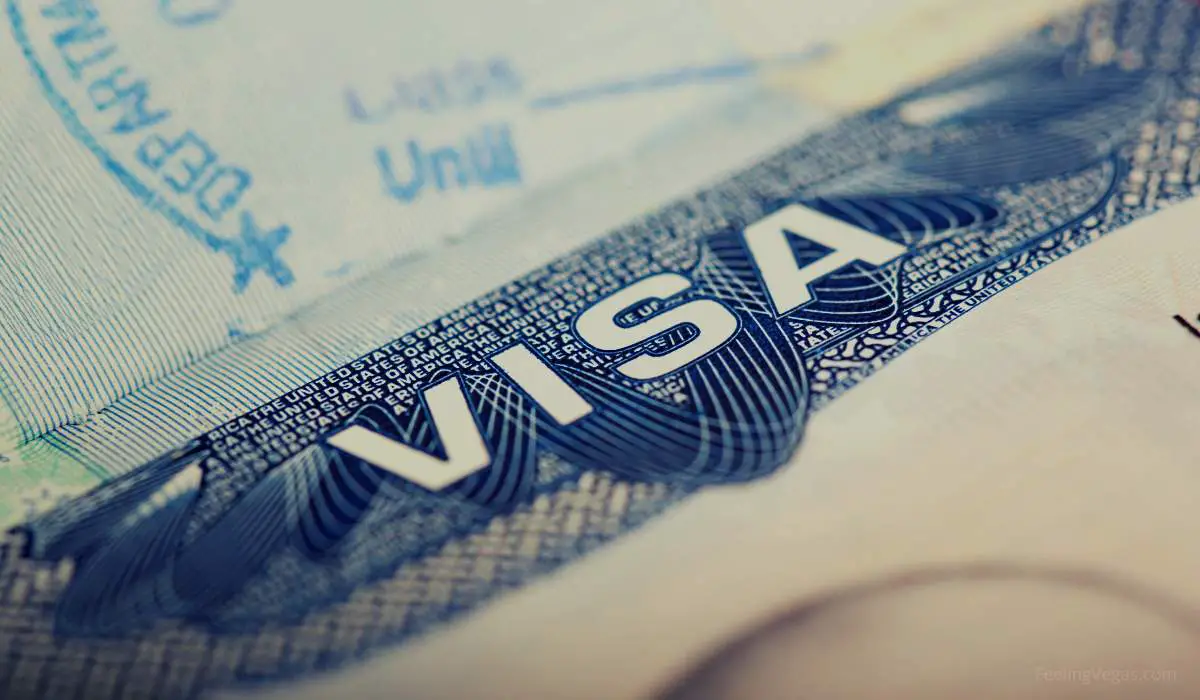
If you’re certain your crime is above the statutory law, you will, in probability, need a visa. It is better to be honest and hope the Consular agent is in a pleasant mood and has very little concern regarding your criminal record.
Sometimes if your offense was 10+ years ago, you’ll have a better chance of being accepted, but it will still need to be disclosed on your visa application. Just because your crime is old doesn’t mean it’s innately void. If you’re uncertain, again, I would consult an Immigration Lawyer.
If your crime was more serious, you’ll require either a B-1 or B-2 Visa. The forms you’ll need for these visas are as follows:
- The DS-156 Form
- Your Passport must be valid for at least 6 months after your return from Vegas
- A Passport style photo
- Documents showing you plan to return to your home, such as rent, proof of real estate, employment, etc.
- May need to prove the purpose of your trip
- Visa Application Fee
- Visa Insurance Fee
If you’re prepared to get started, begin early and take these to your home country’s US Consulate. You can find the nearest one to you through this site – USEmbassy.gov/
Often you will have an interview before being allowed to enter the US, so this is the time to plead your case and let them know your good intentions. You just want a weekend in Vegas! Live and let live!
You may also need to explore a 212 (d)(3) form, but you ought to consult a lawyer that can advise on your specific crime and situation. That is the best way to get tailored information for your case.
Useful Sources and Links
- Visa Guide for Waiver Program Eligibility: https://visaguide.world/us-visa/nonimmigrant/visitor/visa-waiver-program/
- A good source to understand the B1 and B2 visas (the difference being business or personal, and often you need both): https://travel.state.gov/content/travel/en/us-visas/tourism-visit/visitor.html
- Great legal advice put in human terms for someone that doesn’t understand immigration deeply: https://www.alllaw.com/articles/nolo/us-immigration/how-get-b-1-b-2-visitor-visa.html
- US Visa Department of Travel: https://travel.state.gov/content/travel/en/us-visas.html
Final Tips
No one can guarantee you clearance through immigration, but if you have a record, don’t try to hide it from the government. In all likelihood, you will get busted and risk being banned from the states on a permanent or long-term basis.
You will want to start the process very early before finalizing your trip plans to Vegas, as the embassies/consulates are not known for their speed of processing. It could take up to 12 weeks, so budget for this accordingly.
Every customs agent is different, so you’ll have to hope that you get a kind one that has mercy that day on your case. Some are on a power trip and deny any file that comes to their desk, so, unfortunately, a lot of the process will be out of your hands. Make your story sound as mild as can, and keep your fingers crossed! Once you get through that hurdle, you’ll be one step closer to singing Viva Las Vegas all the way down the Strip!
Related Question:
Can you travel to Las Vegas with a Mexican passport? Yes, you can use a Mexican passport to travel to Las Vegas. The passport must not expire within six months of your intended date of travel. In addition, all Mexican citizens will need a current visa and an entry permit which can be obtained from a U.S. Consulate or Embassy in Mexico prior to traveling.
Read More:



